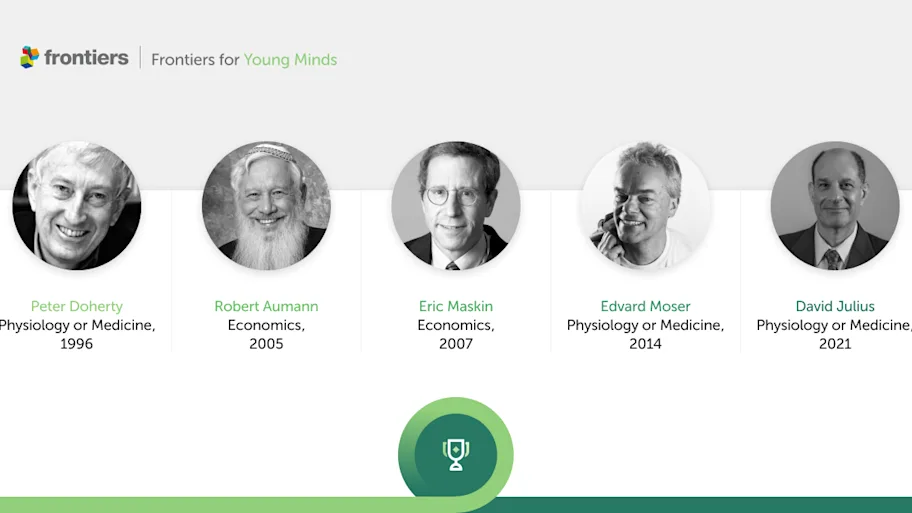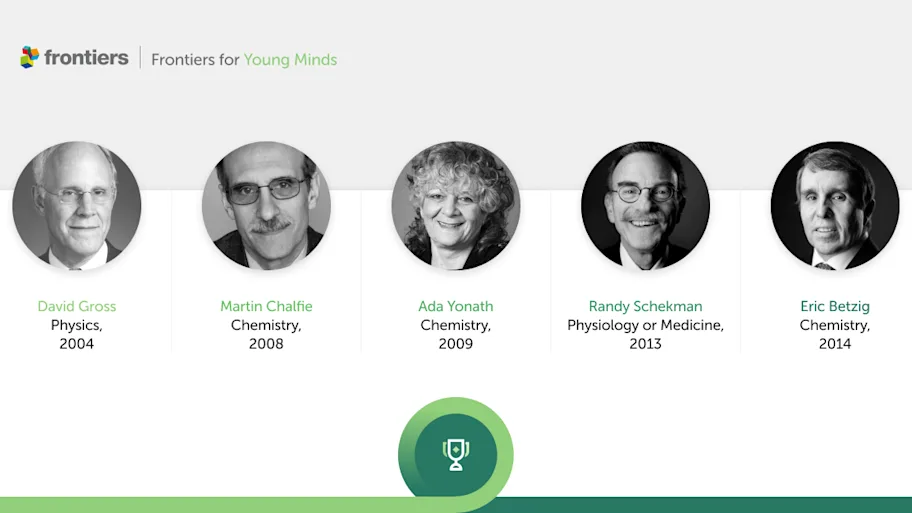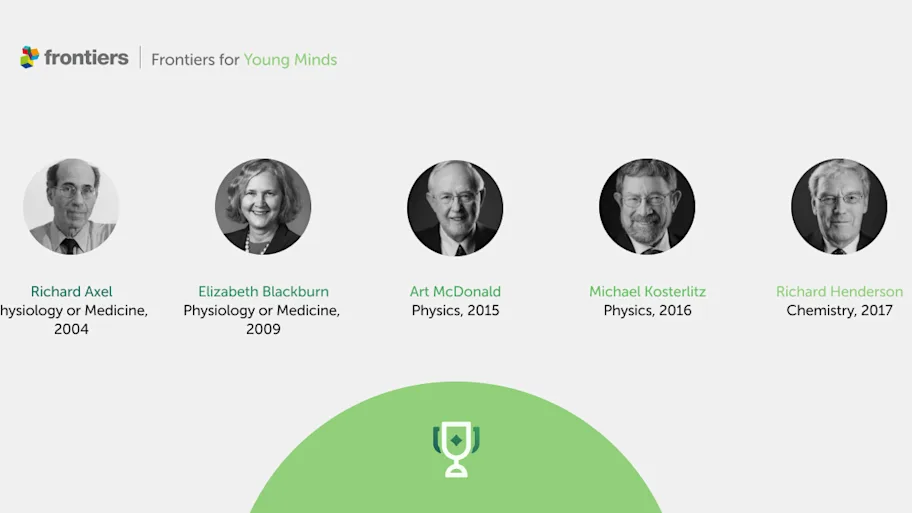
- Science news
- Young Minds
- Frontiers for Young Minds Nobel Collection: Three new Nobel Prize-winning breakthroughs shared by Laureates with young readers
Frontiers for Young Minds Nobel Collection: Three new Nobel Prize-winning breakthroughs shared by Laureates with young readers
This unique ongoing article collection has been read by over 2.1 million people worldwide

Frontiers for Young Minds (FYM), an award-winning science engagement journal for kids, is proud to share three new articles written by Nobel Prize-winners. These three Laureates now bring the total of Nobel winners published in FYM to 33 and form the beginning of the new Volume 4 of the Collection.
Within each article, the authors – who won Nobel Prizes for their work in molecular-level chemistry, genetics and gravitational physics – explain their breakthrough, how they achieved this, and how their discoveries could shape our scientific futures from medicine to measuring our universe.
The articles are:
Moving the World’s Tiniest Car with Molecular Machines, written by Ben L. Feringa, awarded the Nobel Prize in Chemistry in 2016. Did you know that every moment, countless molecular machines are operating in your body? They enable you to move, see, and produce the energy your cells need to function. Ben Feringa built tiny molecular machines inspired by nature – including the tiniest car in the world! Find out how we could use such machines to improve lives.
The CRISPR Revolution: Can We Change Genes for the Better?, written by Jennifer A. Doudna, awarded the Nobel Prize in Chemistry in 2020. Human history has seen several major revolutions, such as the industrial revolution and the internet revolution – CRISPR may be the next revolution we will see. Jennifer Doudna discovered a technology which enables us to re-write the genetics of organisms more simply, cheaply and precisely than ever before. How could this change our relationship with human evolution?
Gravitational Wave Detectors – Past, Present and Future, written by Kip S. Thorne, awarded the Nobel Prize in Physics in 2017. Gravitational waves are ripples in space and time that spread at the speed of light. At first, they were just a fascinating concept – and then Kip Thorne made a breakthrough by designing and building the first instrument capable of successfully detecting gravitational waves, called LIGO. Discover how this could revolutionize our understanding of the universe.
Frontiers for Young Minds publishes engaging scientific articles written by leading researchers in top science institutions worldwide, to inspire the next generation of scientists with key themes across the whole of science, technology, engineering, math, and medicine (STEMM). In the unique, award-winning FYM process, every single article published is first reviewed by young reviewers aged 8-15, to ensure they are both accessible and fun to read for others their own age. The young people who engage directly in this way are coached by Science Mentors, learning critical thinking skills which prepare them to become the scientists of tomorrow.
Welcoming the new publications, head of program Laura Henderson says:
“Our Nobel Collection is the flagship initiative of Frontiers for Young Minds – we are exceptionally proud to attract these most distinguished researchers to connect directly with the next generation and inspire them with their career stories. We have been amazed by the success of the Collection, whose articles have been read by over 2.1 million people, and which will continue to openly share with and engage young – and young-at-heart – lovers of top science worldwide.”
Aaron Ciechanover, one of the Nobel Laureates who has participated in the FYM review process with young people said:
“Reading about science was my hobby as a kid. It was no doubt the seed of my curiosity that grew to become the tree of my discovery. I have every faith this collection of articles will inspire a lifelong interest in many young people who I hope will pursue similar goals."
Discover all the Nobel Collection Volumes here:
About Frontiers for Young Minds
Frontiers for Young Minds (FYM) is an award-winning, open-access, scientific journal for kids, founded as a non-profit engagement project by the Frontiers Research Foundation. It publishes articles written by leading researchers and peer reviewed by children aged 8-15. The journal features over 1,600 articles from 4,250+ authors, achieving more than 50 million views and downloads. Over 9,500 young minds have reviewed the articles with the guidance of 900+ science mentors, from 65 countries worldwide. Frontiers for Young Minds publishes in eight subject areas (Astronomy and Physics, Biodiversity, Chemistry and Materials, Earth Sciences, Engineering and Technology, Human Health, Mathematics and Economics, Neuroscience and Psychology) with materials available in English, Hebrew, Arabic, Chinese and French. The Nobel initiative has been featured in the Washington Post, and the journal was recently awarded the Open Education Global 2024 Award for Significant Impact.
About Frontiers
Frontiers is a leading research publisher. Our role is to provide the world’s scientists with a rigorous and efficient publishing experience. Scientists empower society and our mission is to accelerate collaboration and discovery by making science open – enabling researchers to find the solutions we all need for healthy lives on a healthy planet. Powered by custom-built technology, artificial intelligence, and a collaborative peer review, our community journals give experts in more than 1,800 academic fields an open access platform to publish high quality, high impact research. Through our outreach work to build strong partnerships with business, policymakers, and educators, we’re leading the transition to open science.






